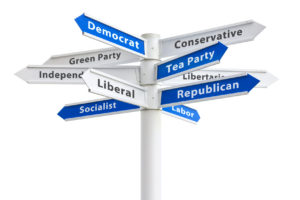I want to raise an issue that I have bitched about for years, but which needs further bitching from me.
It deals with the partisan election of judges in Texas. Yes, judicial candidates in this state run as Democrats and Republicans. They don’t run necessarily on their judicial philosophy, which should be the determining factor on whether to elect these men and women. Oh, no. They run as partisan politicians.
For the life of me I do not understand why we cannot shed the party labels for judicial candidates.
For nearly four decades watching Texas politics up close and personal I have seen fine men and women drummed out of office because they were of the “wrong party,” or the party that wasn’t in control of the political landscape. Good Republican judges and candidates would lose to inferior Democratic opponents in the old days because they ran as members of the “out” party. Then the tide turned in Texas and we have watched qualified Democratic judges and judicial candidates losing to numbskull Republicans for the same reason; Republicans dominate politics in this state and Democrats are still trying to get a foothold.
I have asked judges and those who want to be judges a question ever since I arrived in Texas in early 1984: What is the difference between Democratic justice and Republican justice?
So help me, I cannot remember a single cogent answer to that question. Not a single judge or judicial contender has been able to answer that one for me. I hope during the upcoming election season to be able to ask future candidates for judicial office that question.
Judicial candidates should run on their philosophy and how they interpret the law. I am not a lawyer, but I know enough to be able to discern the difference between a liberal judicial candidate and a conservative one. Whether those differences comport with partisan labels is utterly beside the point.
I know full well my argument won’t hold much sway with those in power. I will keep harping on it, though, until I no longer can harp on anything. Texas’s partisan election of judges does not do justice to the judicial system.




